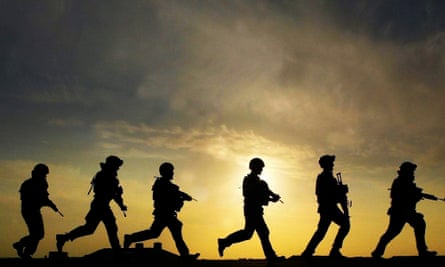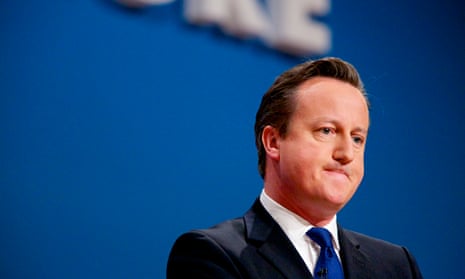Four years ago David Cameron famously expressed frustration at reading his generals’ gripes in the morning papers: “I tell you what, you do the fighting and I’ll do the talking.” With a general election looming, Downing Street has begun imposing the traditional pre-election purdah on senior British officers. But neither they nor others less encumbered by political pressure have stopped talking.
The head of the US army, General Ray Odierno, has said that he is “very concerned” about cuts to British military spending, noting that shrinking British units might have to operate inside American units in the future rather than alongside them. The former head of the British army General Sir Peter Wall repeated the warning over the weekend. And over a week ago General Sir Adrian Bradshaw, Nato’s deputy commander, warned that Russia was an “existential threat” requiring a more forceful Nato response.
It is improper for senior officers to intervene in political debates. If they dissent from government policy, they can express their concerns privately or resign their posts and do so from the rooftops. But the curious thing about Britain today is that there is no political debate on defence at all. The armed forces are certainly doing the fighting, or at least assisting Ukrainians, Iraqis and Afghans in doing so. But David Cameron is not doing the talking, and neither Ed Miliband nor his shadow defence secretary seem inclined to force the issue.
Defence has been neutralised as an election issue, with the connivance of both major parties, and voters have been denied a vital debate in a year in which the next government will begin a major defence and security review, and at a time when both eastern Europe and the Middle East are in turmoil. It is this vacuum that military voices have sought to fill.
Despite Nato members agreeing last year to maintain defence spending at 2% of GDP, only the United States and Estonia seem likely to meet this pledge through 2015. The UK government has loudly endorsed the pledge – but said it will only apply until the end of this parliament, and whistled loudly when it was pointed out that on present trends it will have to be abandoned.

If defence spending isn’t frozen in real terms, the impact will be even more severe. The Labour party has decided that there’s little to be gained by promising otherwise. Indeed, the DUP is the only party to have staked out an unambiguous position. One can make the case that such a spending target is arbitrary, that Britain should focus on capabilities rather than cash, or that Britain, and Europe, will continue to be able to catch a free ride on US military involvement in Europe. But it is a disservice to voters to ignore the issue altogether.
The resounding silence extends to other parts of defence policy. Perhaps for the first time since the war, Europe faces serious threats from the east and the south at once. Should British defence resources be prioritised for open-ended counter-terrorism campaigns in the Middle East and north Africa, or rapid, high-intensity, hybrid warfare in the Baltics? Is our current approach in Iraq working, and when can British forces safely disengage from the open-ended campaign of airstrikes and training? With technology transforming warfare, has Britain struck the right balance with its investments in manned v unmanned platforms? Hawks and doves can reasonably give divergent answers to these difficult questions. But all we have at present – and look at each party website if you doubt this – are vacuous slogans.
Both Labour and Conservatives have promised a post-election strategic defence and security review, of the kind last held in 2010. Labour has even promised that such quinquennial reviews, which it revived under Tony Blair, will be enshrined in law. This is sensible enough. But in the event of a Labour victory or complex coalition, it’s possible we won’t see the results until 2016. Process is no substitute for policy.
The coming weeks’ manifestos will provide an opportunity for politicians to rectify this collective failure of leadership. No politicians like to tie their hands, particularly when vast sums of money are involved. Yet issues such as the economy, education, health and Europe have all merited deeper and more serious debate. If politicians truly want to shut the generals up, it is incumbent on them to end their own, self-imposed silence on matters of war and peace.
